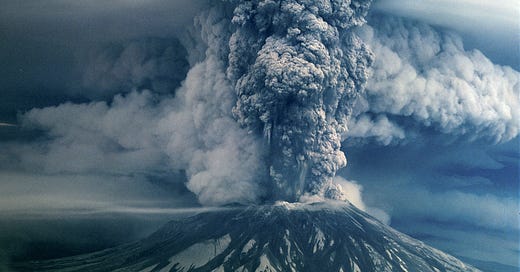May Frosts Persist In Europe; Mumbai Logs Coldest May Temp Since Records Began (In 1881); Volcanoes That Changed The Modern World; + NOAA Pulls Plug On "Billion Dollar Disasters" Database
Past eruptions changed the world. The next big one could change ours.
May Frosts Persist In Europe
Following the frosts of recent days, another round of unusually cold mornings have hit Europe.
Sweden saw the lowest reading on May 8, with Tjakaape registering -8.8C (16.2F). Belarus, Lithuania, Poland, Latvia, Czechia, Austria, Denmark, Belgium and even parts of Spain recorded subzero temperatures.
Notable lows included -2.8C (27F) in Bobruisk, Belarus; -2.7C (27.1F) in Baranovici and Ukmerge; and -2.5C (27.5F) in Lebork and Ketrzyn, Poland. While in Lithuania, the -5.8C (21.6F) in Varėna has been confirmed by the Lithuanian Hydrometeorological Service (LHT) to be the coldest May 8 on record, besting the -4.8C (23.4F) from 2019.
Many low elevations saw daytime highs under 5C (41F), with snowfall reported in several areas. Snow fell in the Leningrad region of northwestern Russia, for one, an unusual sight for May.
The cold pattern is expected to persist across continental Europe, with continued morning frosts between 0 and -5C (32 to 23F) and regional highs struggling to between 5 and 10C (41 to 50F) through mid-May.
Mumbai Logs Coldest May Temp Since Records Began (In 1881)
The Colaba observatory in Mumbai—the capital of India's western state of Maharashtra—just recorded its coldest May morning on record.
Keep reading with a 7-day free trial
Subscribe to Electroverse Substack to keep reading this post and get 7 days of free access to the full post archives.



